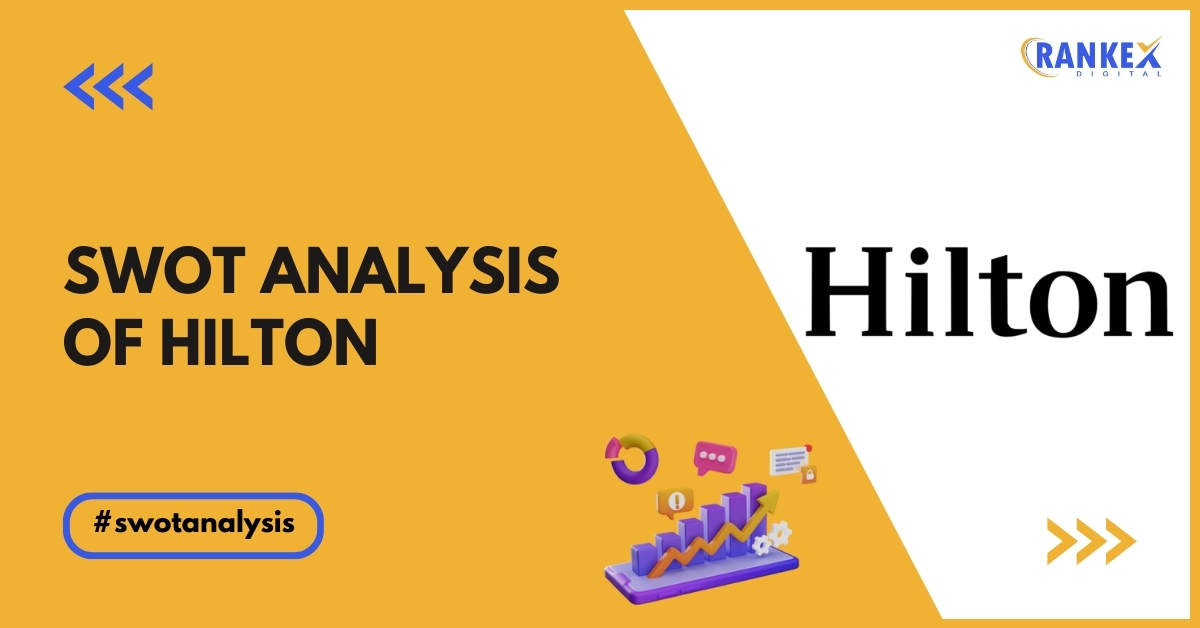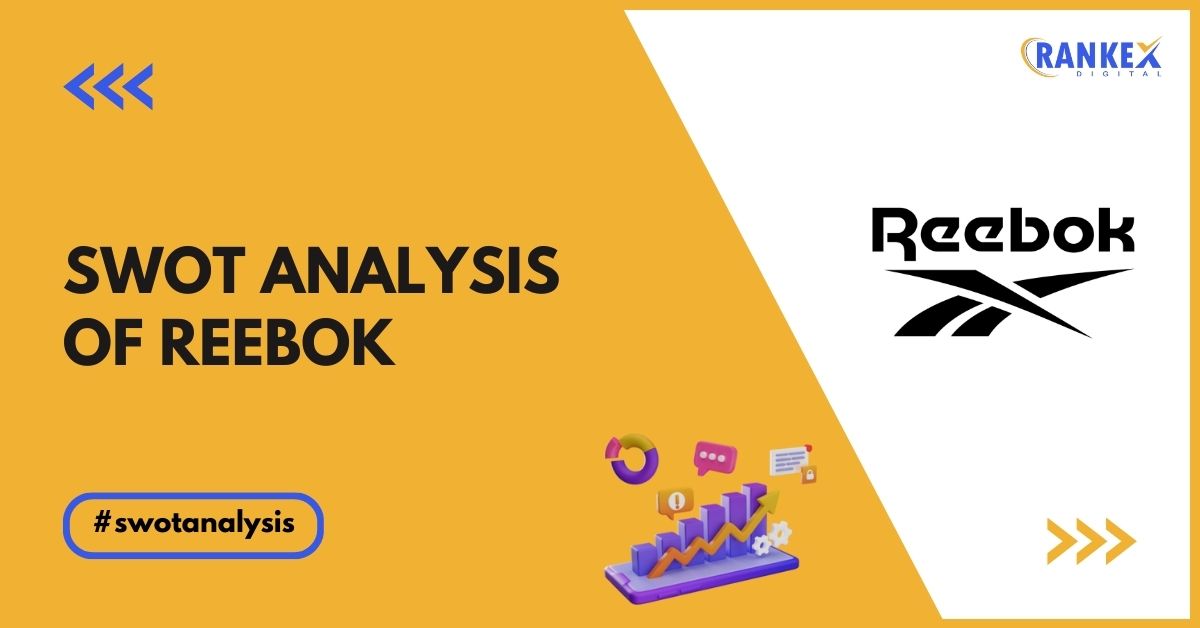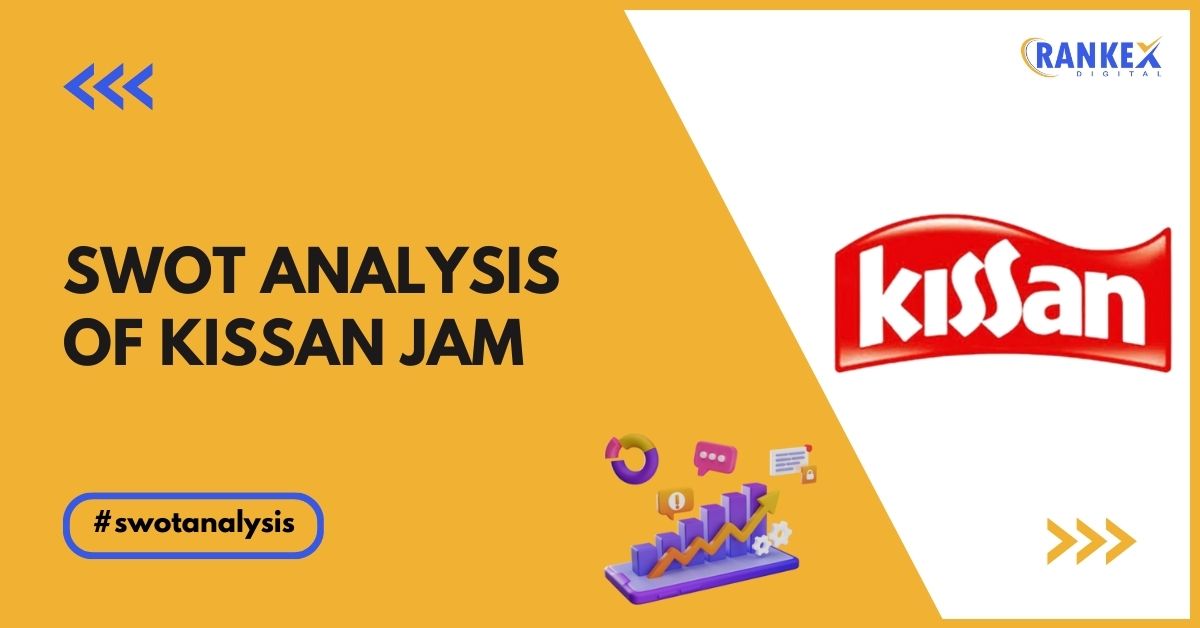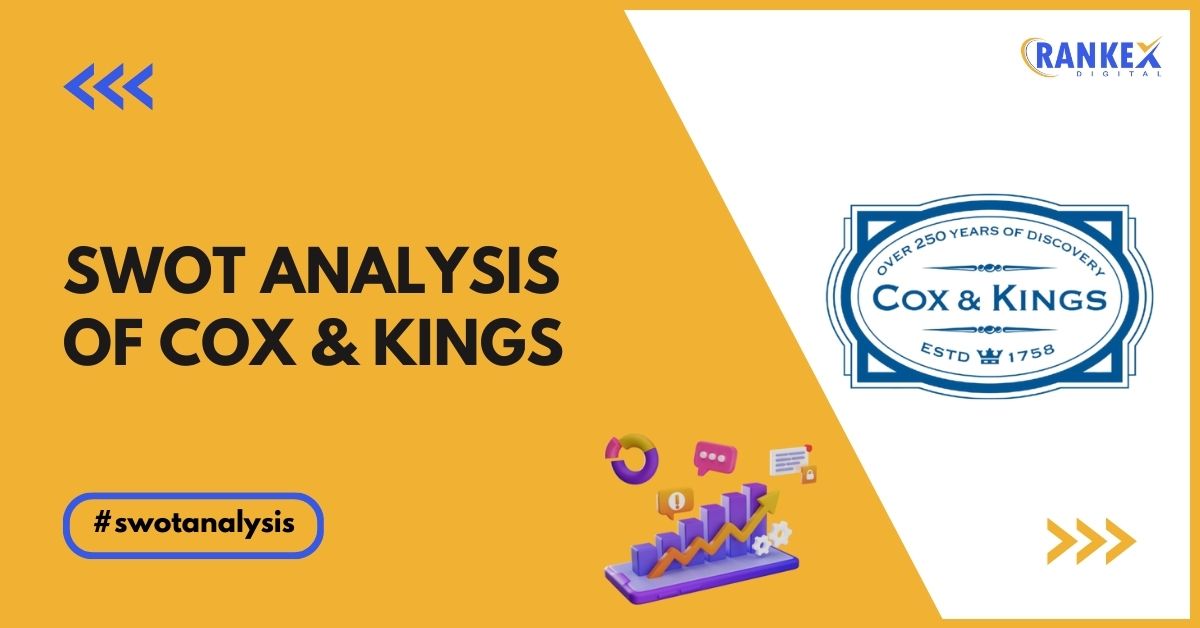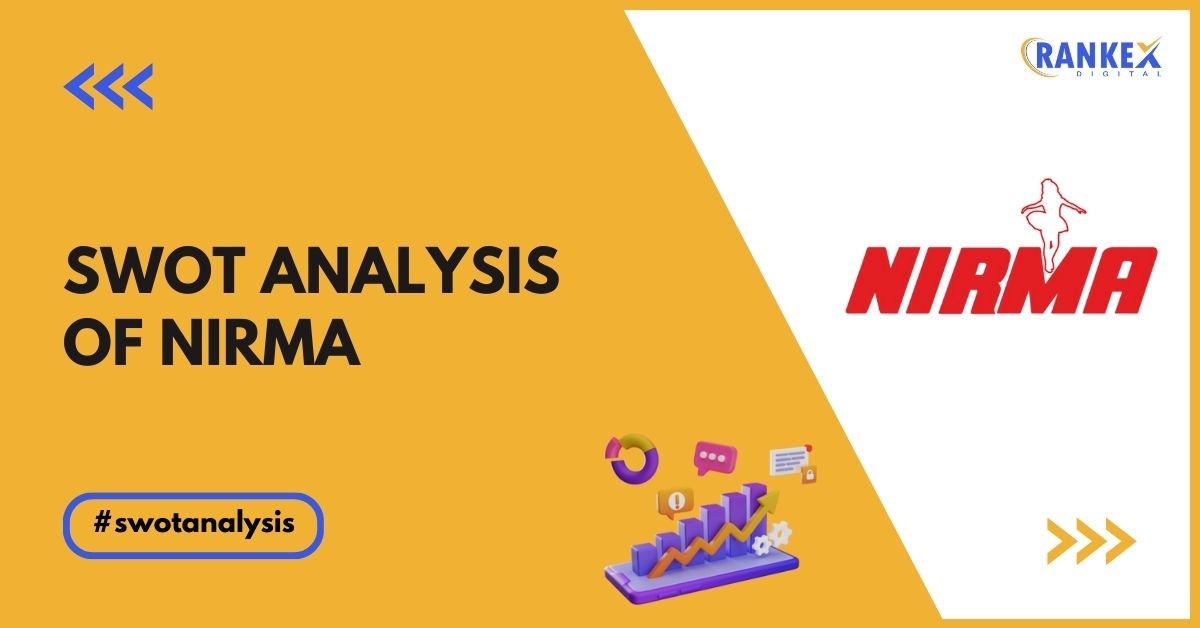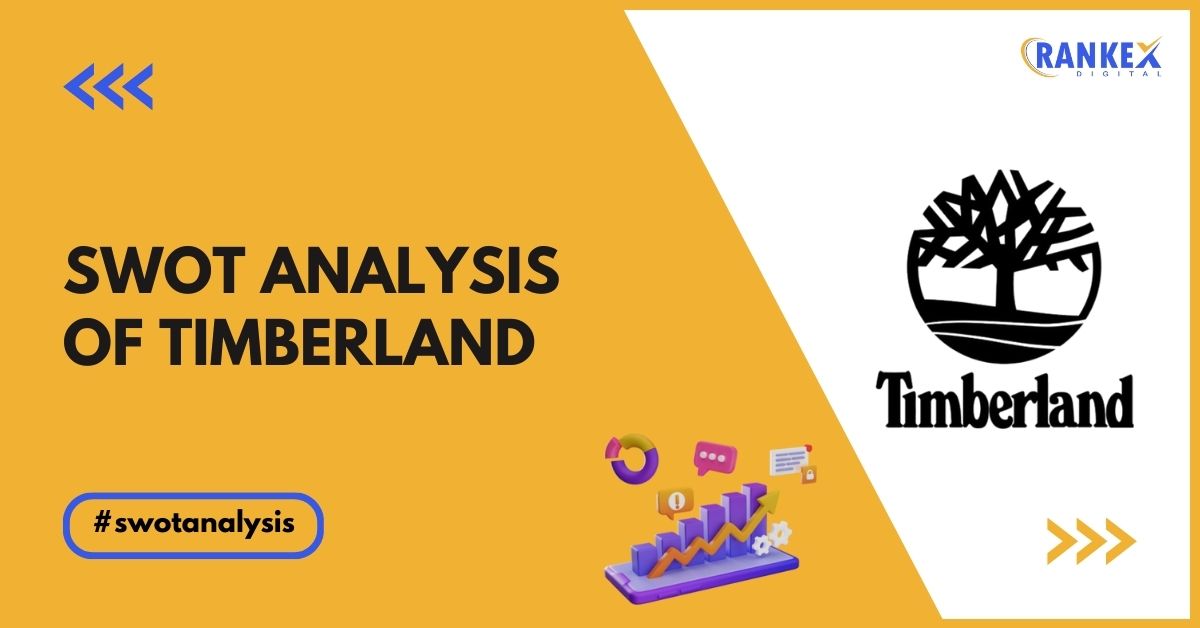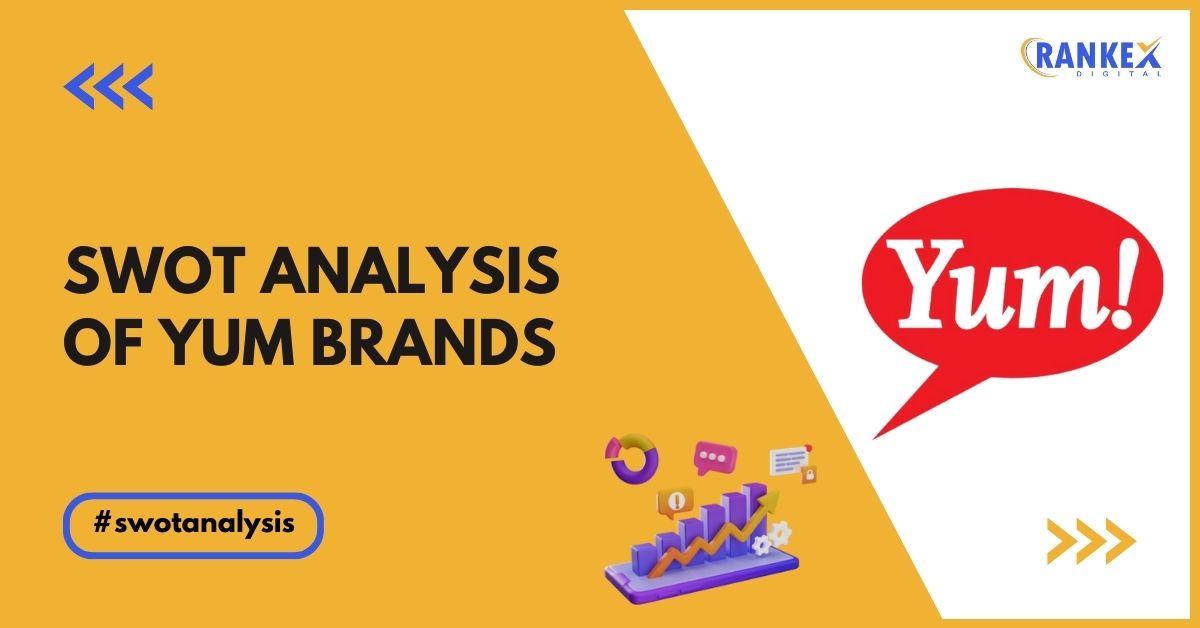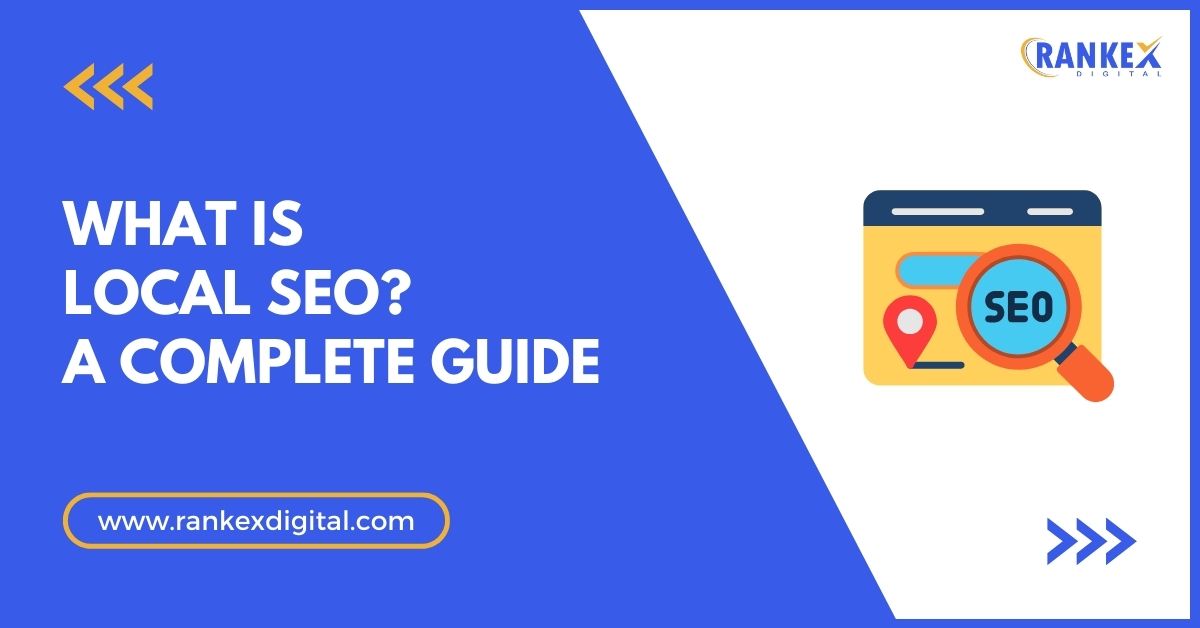Hilton, one of the most recognized names in the hospitality industry, has been setting global standards for service and innovation for decades.
Founded in 1919 by Conrad Hilton, Hilton Worldwide operates a broad portfolio of brands that cater to a wide array of customer needs, from luxury accommodations to budget-friendly options.
Its widespread global presence, iconic brands, and commitment to excellence have cemented its position as a leader in the hospitality sector.
Understanding the strengths, weaknesses, opportunities, and threats (SWOT) of Hilton is essential for evaluating its position in the competitive market and strategizing for future success.
This article provides an in-depth SWOT analysis of Hilton, shedding light on its internal capabilities and external challenges.
In this blog
Overview of Hilton
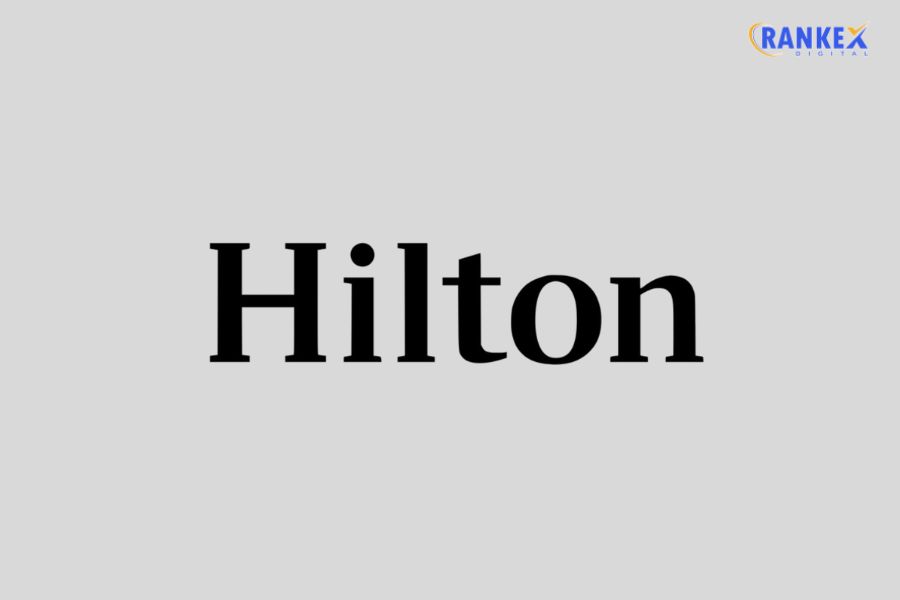
Hilton Worldwide Holdings Inc., headquartered in McLean, Virginia, operates over 6,500 properties across more than 119 countries. Hilton’s portfolio includes well-known brands such as Hilton Hotels & Resorts, Waldorf Astoria, DoubleTree, Embassy Suites, and Hampton by Hilton. With a legacy of providing quality service and innovative hospitality solutions, Hilton has garnered loyalty from both guests and business partners.
Quick Stats About Hilton
| Attribute | Details |
|---|---|
| Founder | Conrad Hilton |
| Year Founded | 1919 |
| Origin | Dallas, Texas, USA |
| No. of Employees | Over 173,000 |
| CEO | Christopher J. Nassetta |
| Company Type | Public |
| Market Cap | $47.5 Billion |
| Annual Revenue | $10.5 Billion |
| Net Profit | $1.3 Billion |
Current News of Hilton
- Sustainability Initiatives: Hilton continues to lead in sustainable practices, including energy-efficient operations, waste reduction, and a commitment to carbon neutrality by 2050.
- Technology Investments: Hilton has been heavily investing in technology to enhance guest experience, such as mobile check-ins, digital room keys, and AI-powered customer service.
- Expansion Plans: Hilton continues to expand its presence in emerging markets, particularly in Asia-Pacific and the Middle East, to capture the growing demand for global travel.
SWOT Analysis of Hilton
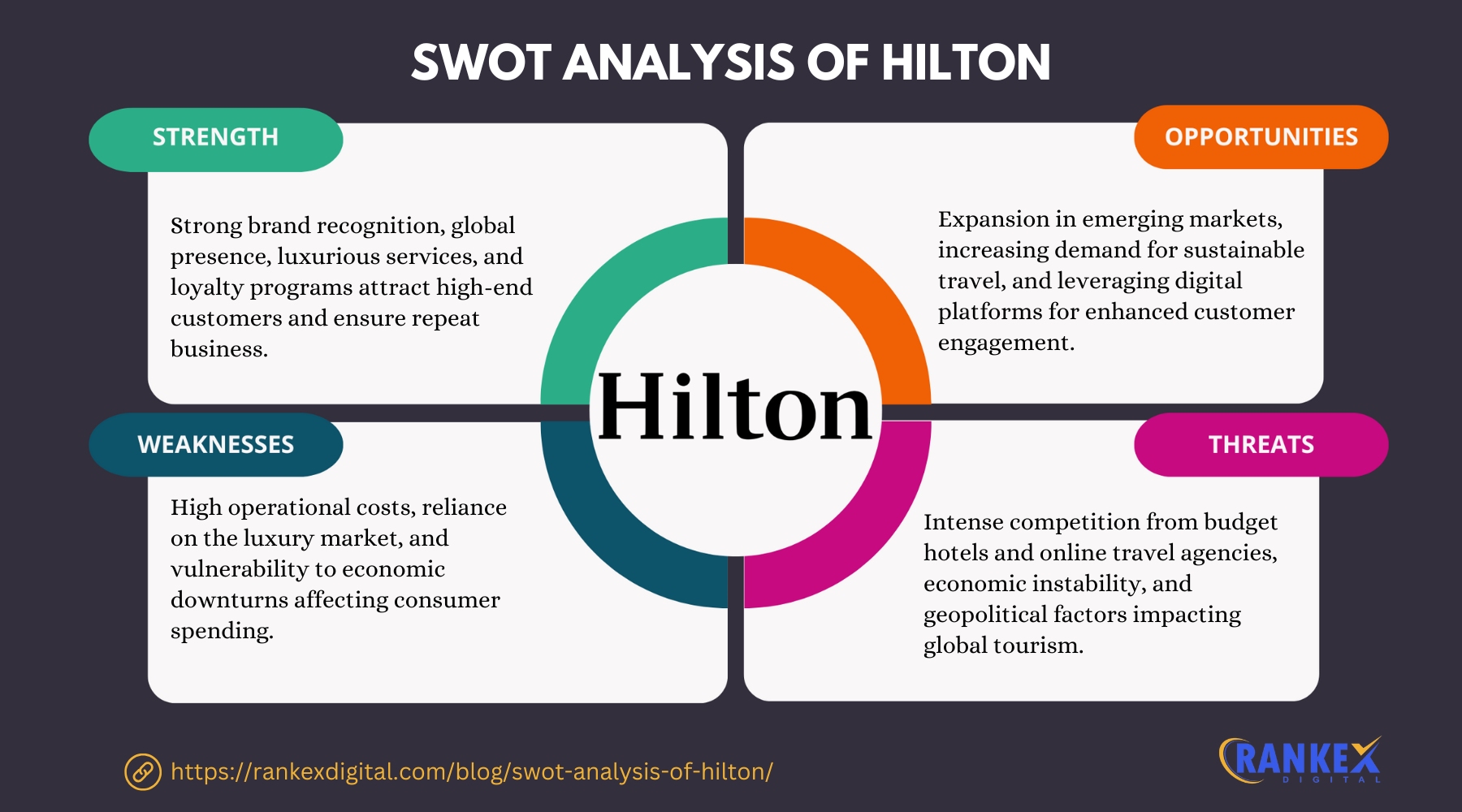
Strengths of Hilton
- Strong Brand Portfolio: Hilton’s diverse range of brands, from luxury to mid-tier and budget accommodations, enables it to cater to a broad spectrum of customers.
- Global Presence: With over 6,500 properties across 119+ countries, Hilton boasts a massive global presence that provides recognition and convenience for travelers worldwide.
- Customer Loyalty Programs: Hilton Honors, one of the largest hotel loyalty programs globally, helps build a strong customer base and ensures repeat business.
- Innovative Technology: Hilton is at the forefront of integrating technology into the guest experience, with features like digital room keys and advanced booking systems that cater to modern travellers.
- Sustainability Initiatives: Hilton’s commitment to sustainable travel through energy-efficient properties and waste reduction initiatives enhances its reputation and appeal to environmentally conscious customers.
Weaknesses of Hilton
- Dependence on the Travel Industry: Hilton’s performance is heavily reliant on the global travel industry, which is susceptible to fluctuations due to economic downturns, geopolitical tensions, and pandemics.
- High Operational Costs: Operating a vast number of hotels worldwide comes with high maintenance and staffing costs, which can impact profitability.
- Limited Luxury Market Penetration: Despite its strong brand portfolio, Hilton’s luxury segment is less expansive compared to its competitors like Four Seasons or Ritz-Carlton.
- Brand Dilution: With a large number of brands under its umbrella, there is a risk of brand dilution, as customers may find it hard to differentiate between Hilton’s various offerings.
- Vulnerability to Economic Cycles: The hospitality industry is highly sensitive to economic fluctuations, which can lead to fluctuating occupancy rates and room pricing.
Opportunities for Hilton
- Expansion in Emerging Markets: Hilton can further expand its presence in emerging markets like Asia-Pacific, Latin America, and Africa, where the demand for international travel is growing rapidly.
- Post-Pandemic Travel Surge: As global travel recovers post-pandemic, Hilton can capitalize on the increased demand for leisure and business travel, particularly in key tourist destinations.
- Increase in Domestic Tourism: Many countries are experiencing a boom in domestic tourism, and Hilton can tap into this market by catering to local travelers with customized offerings.
- Diversification of Services: Hilton has the opportunity to diversify its business by expanding into vacation ownership, luxury private residences, or expanding its MICE (Meetings, Incentives, Conferences, and Exhibitions) offerings.
- Technological Advancements: By continuing to invest in digital experiences and AI-driven customer service, Hilton can provide enhanced customer experiences and streamline operations, improving efficiency and satisfaction.
Threats to Hilton
- Intense Competition: Hilton faces intense competition from both established hotel chains like Marriott, InterContinental, and Hyatt, as well as new entrants in the budget accommodation sector and home-sharing services like Airbnb.
- Economic Instability: Economic downturns and recessions can severely impact travel demand, particularly for mid-range and luxury hotel services.
- Regulatory Risks: Changes in global regulations, such as stricter environmental laws or new taxation policies in key markets, could pose a threat to Hilton’s operations.
- Cybersecurity Threats: As a technology-driven business, Hilton faces increasing cybersecurity risks, including data breaches that could harm its reputation and customer trust.
- Political and Geopolitical Instability: Political unrest or instability in key markets, such as the Middle East and Asia, can disrupt business operations and reduce the number of international travelers.
Top Competitors of Hilton
- Marriott International
- Hyatt Hotels Corporation
- InterContinental Hotels Group (IHG)
- Accor Hotels
- Airbnb (for short-term rentals)
Conclusion
The SWOT analysis of Hilton highlights its strong brand portfolio, global presence, innovative technology, and commitment to sustainability as key strengths. However, the company faces challenges such as reliance on the travel industry, high operational costs, and competition from new and existing players in the hospitality sector.
Hilton has several opportunities, including expansion in emerging markets, post-pandemic travel recovery, and the growth of domestic tourism. However, it must navigate threats such as economic instability, regulatory risks, cybersecurity challenges, and geopolitical issues.
By leveraging its strengths and exploring new opportunities while addressing weaknesses and external threats, Hilton can continue to maintain its position as a global leader in the hospitality industry.
Frequently Asked Questions
- What are the key strengths of Hilton in the hotel industry?
Hilton’s strengths include its strong brand portfolio, global presence, customer loyalty programs, innovative technology, and commitment to sustainability. - How does Hilton compete with other hotel chains?
Hilton competes by offering a diverse range of brands catering to different market segments, investing in technology for an enhanced guest experience, and maintaining a strong global footprint. - What are the challenges Hilton faces in the hospitality sector?
Hilton faces challenges such as high operational costs, dependency on the global travel industry, intense competition, and risks related to economic fluctuations and cybersecurity. - What are the opportunities for Hilton to grow in the future?
Hilton can expand further in emerging markets, capitalize on the post-pandemic travel boom, tap into the growing domestic tourism market, and invest more in technological innovations. - How does Hilton manage its sustainability efforts?
Hilton is committed to sustainability by implementing energy-efficient systems, reducing waste, and setting a goal to achieve carbon neutrality by 2050, aiming to promote responsible tourism.

